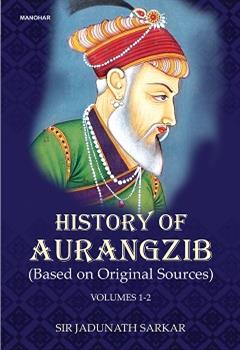History of Aurangzib (Based on Original Sources) (Vols. 1-2)
Availability :
In Stock
₹ 476.10
M.R.P.:₹ 690
You
Save: ₹213.90 (31.00% OFF)
(Inclusive
of all taxes)
Delivery:
₹ 130.00 Delivery charge
Author:
Sir Jadunath Sarkar
Publisher:
Manohar Publishers
ISBN-13:
9789394262232
Publishing Year:
January 2022
No. of Pages:
408
Weight:
800 g
Language:
English
Book Binding:
Hardcover











